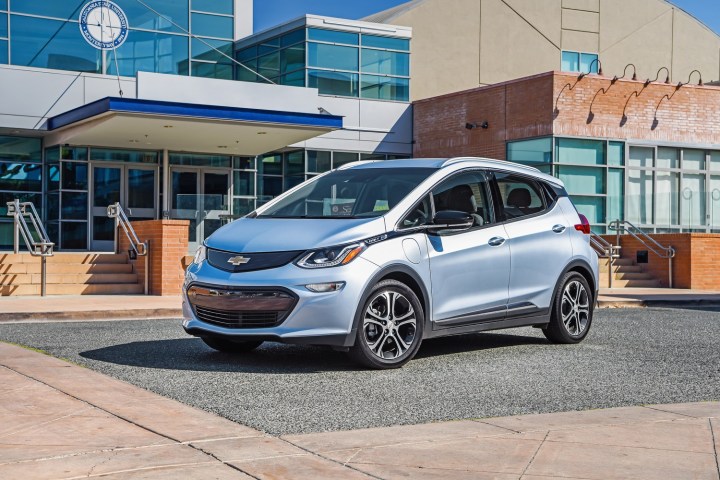
“Like all batteries, the amount of energy that the high voltage “propulsion” battery can store will decrease with time and miles driven. Depending on use, the battery may degrade as little as 10 percent to as much as 40 percent of capacity over the warranty period,” warns a snippet on page 322 of the Bolt’s owner’s manual. The text was discovered by Green Car Reports.
The warranty period Chevrolet refers to is eight years or 100,000 miles, whichever comes first. A 10-percent loss wouldn’t be alarming, but a 40-percent loss would reduce the Bolt’s operating range to 143 miles on a single charge in ideal driving conditions. That’s still more than many electric vehicles on the market — including the BMW i3 — but it’s far less than advertised.
Every type of battery degrades over time, so capacity loss is part of living with an electric vehicle. However, Chevrolet’s decision to include the paragraph in the Bolt’s owner’s manual might have been made to to protect itself from the type of lawsuits that other carmakers have faced arising from this same issue.
Angry Nissan Leaf owners in California and Arizona filed a class-action lawsuit against the Japanese automaker after they saw their driving ranges drop drastically; one owner reported range had dropped from 100 to 44 miles in a year. A judge approved a settlement last year, and Nissan agreed to replace the battery pack in affected vehicles free of charge.
Looking through the Chevy Bolt’s owner’s manual also reveals a second, more pleasant surprise. An electric vehicle does without many of the wear-and-tear items found in a gasoline-powered car, including spark plugs, a timing belt, and an oil filter. Largely as a result, the only major maintenance the Bolt needs in its first 150,000 miles is a simple coolant flush.
Editors' Recommendations
- 2024 Chevrolet Equinox EV: price, release date, range, and more
- Netflix could add games to its platform within the next year
- 2022 Chevrolet Bolt EUV first drive review: Maintaining momentum
- Kickstarter loses 40% of its staff after a wave of layoffs and buyouts
- Chevrolet could make the mid-engined, eighth-generation Corvette a hybrid




